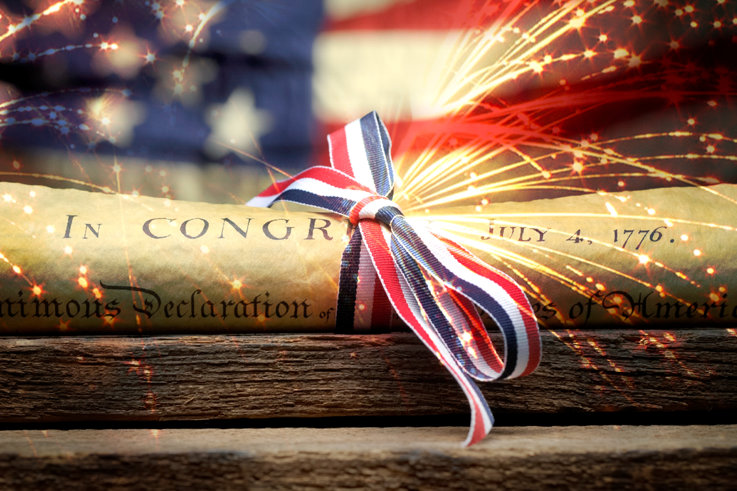
-
HOME
-
WHAT IS STANDOur Mission Our Values Our Help Contact
-
WHAT WE FIGHT FORReligious Freedom Religious Literacy Equality & Human Rights Inclusion & Respect Free Speech Responsible Journalism Corporate Accountability
-
RESOURCESExpert Studies Landmark Decisions White Papers FAQs David Miscavige Religious Freedom Resource Center Freedom of Religion & Human Rights Topic Index Priest-Penitent Privilege Islamophobia
-
HATE MONITORBiased Media Propagandists Hatemongers False Experts Hate Monitor Blog
-
NEWSROOMNews Media Watch Videos Blog
-
TAKE ACTIONCombat Hate & Discrimination Champion Freedom of Religion Demand Accountability
The Fourth of July: What Are We Celebrating, After All?
America is the only nation that celebrates a piece of paper.
Other nations commemorate their independence by marking military victories. We do not.

We built our national Independence Day around an essay, a signed agreement, if you will, crystallizing an idea in verbiage. Were we to set a holiday based on our military victory over Britain and their subsequent surrender on September 3, 1783, we’d be calling the day we set off our fireworks and enjoy our picnics, ball games, flag-waving and parades the Third of September, not the Fourth of July.
So, at the end of the day, when the sun sets on the parades and posturing, the barbecues and bandstands, the speeches and spectator sports, and the fireworks begin—is it all just about an idea?
Ours is a nation based on an idea—something as incorporeal and intangible as a rainbow. That idea, often disputed over its exact boundaries and depth, is freedom—freedom to think and believe according to the dictates of one’s conscience.
In the America of 1776, religious freedom was no longer a radical notion. Thousands had already come to our shores, risking unfriendly seas, starvation, illness and violent death seeking it. And, thanks to those thousands, thousands more were born into it. And before long, those thousands became millions, and those millions became hundreds of millions, until freedom, still an idea, has become as real to us as the air we breathe. Invisible, yes, but palpably there.
That the idea of freedom does not sit still and behave itself but insists instead on spreading itself around and sometimes shoving older ideas—of prejudice, of intolerance, of exclusion—aside is part of its nature.
As Scientology Founder L. Ron Hubbard wrote, “The main trouble with freedom is it does not have an anatomy. Something that is free is free.”
So this thing that we cannot see, hear or touch—this idea that began the American experiment 248 years ago this July, this notion so easily explained to a five-year-old that has yet inspired truckloads of eloquence from our most brilliant minds—may end up being the one thing to outlast our soaring monuments, memorials and technological marvels.
So, at the end of the day, when the sun sets on the parades and posturing, the barbecues and bandstands, the speeches and spectator sports, and the fireworks begin—is it all just about an idea?
Yes, “just” an idea.
An intangible, wondrous, glowing idea.








